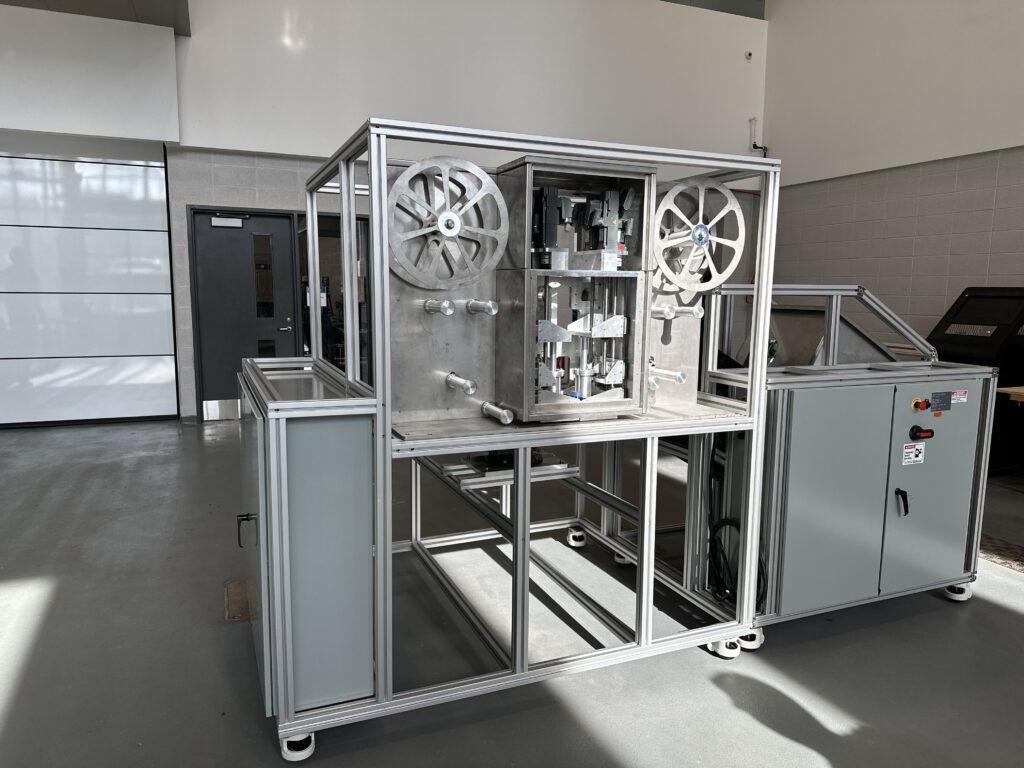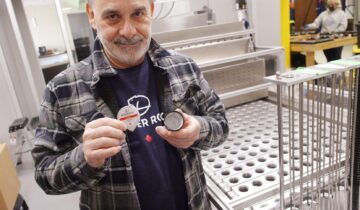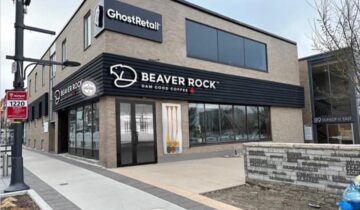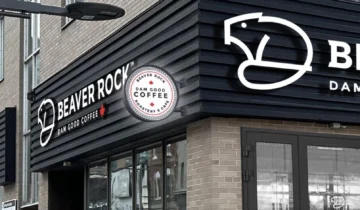“If a little, wee coffee company can think differently and do stuff, then everybody can,” says Beaver Rock Coffee’s president Dan Saso.
A repeat entrepreneur and former corporate banker, Saso never planned to run his own craft coffee company. His first venture, Matrix Audio Designs, was in the tech world manufacturing high-quality audio systems. In the early 2000s Matrix was bought by global audio company AMX, which is currently owned by Samsung. Following the acquisition, Saso and his partner Rosalind Saso became angel investors. One of their investments was Barrie, Ontario-based Beaver Rock Coffee.
Beaver Rock Coffee produces its own coffee beans and packaging, including single serve, or K-Cups. Saso sees his coffee company as more than that though; built into the company’s mission is to create positive impacts on the environment and within local communities. Beaver Rock Coffee also approaches coffee from an innovation mindset.
It was that mindset that led the little coffee company to develop its own K-Cups packaging machine locally, sustainably, and at a cheaper cost than working with international manufacturers.
Solving a packaging problem
When the Sasos took over Beaver Rock Coffee in the mid 2010s, they quickly realized there were problems with their packaging equipment. They began working with nearby Georgian College’s Research and Innovation Department and its students to refurbish two of Beaver Rock Coffee’s cup packaging machines.
Saso says the remodel worked, but he soon realized that the equipment still had a big problem – it wasn’t environmentally friendly. “We were still losing a lot of product; for me it bothered me because environmentally … we were still throwing a lot of stuff away.”
Beaver Rock Coffee first looked to purchase new equipment to solve this problem but couldn’t find anything cost-effective or that met its needs. That’s when the idea to create something brand new emerged. Beaver Rock Coffee attempted to work with international manufacturers but ran into a road bump – those companies wanted to keep the intellectual property (IP).
Not wanting to lose that valuable IP, Beaver Rock Coffee reached out to Georgian College again. The pair teamed up, and with financial support from the Ontario Centre of Innovation’s (OCI) Collaborate 2 Commercialize (C2C) program, were able to create the K-Cup packaging machine. The C2C program is specifically designed to allow private companies to work with academics to commercialize IP.

Single-serve coffee, or K-Cups, rose to prominence in the early 2010s, but with their widespread use came negative environmental impacts, including the use of non-recyclable plastics and overseas manufacturing. In recent years, there have been movements by companies to make single-serve coffee more sustainable.
Beaver Rock Coffee’s packaging machine takes empty K-Cup pods and customizes coffee filters to fit in those pods. It’s a process that Saso says few coffee companies can do locally. Then, the coffee is dispensed into the pod and sealed. A second robot removes the cup and places it on a conveyor for packaging into retail boxes. Beaver Rock Coffee’s K-Cups are made from 100% recyclable materials, with the hope to eventually shift to biodegradable K-Cups.
Working with Georgian allowed Beaver Rock Coffee to significantly reduce the price of manufacturing the K-Cups. Saso claims that Beaver Rock can produce its K-Cups for less than 4 cents per cup compared to 12 cents overseas.
The creation of the packaging equipment allowed Beaver Rock Coffee to not only keep production local and cut costs, but keep its IP and create a brand-new revenue stream where it can also package K-Cups for other companies. Saso claims that around 10 companies in the United States are already vying to work with Beaver Rock Coffee.
“Beaver Rock Coffee’s story demonstrates the power of innovation and exemplifies the entrepreneurial spirit that’s thriving in Ontario,” said Claudia Krywiak, President and CEO of OCI. “Their commitment to sustainable practices and developing an innovative, cost-effective solution is not only admirable but also a benchmark for other companies.”




 No products in the cart.
No products in the cart.